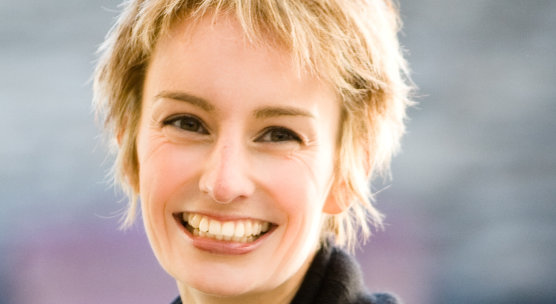Group identifications affect likelihood of teenagers smoking, drinking and taking cannabis
Published On Mon 7 Mar 2016 by Grant Hill

Teenagers who interact positively with their family, school and friends are far less likely to smoke, binge drink and use cannabis than peers who fail to identify with these social groups, according to research from the University of Dundee.
The research team, led by Psychology PhD student Kirsty Miller, surveyed more than 1000 high school pupils aged 13-17 from the Fife area. The results showed that group identification protects against adverse health behaviour, with levels of identification with family, school and friendship groups predicting the likelihood of teenagers having smoked cigarettes, drank to excess or smoked cannabis in the past month.
The paper, published today in the British Journal of Developmental Psychology, looks at adolescent substance use from the perspective of social identity. The researchers asked participants to rate the ties they felt to the three groups. The more groups they strongly identified with, the less likely they were to use tobacco, alcohol or cannabis.
The survey found that 14 per cent of respondents had smoked cigarettes, 31 per cent had binged on alcohol and 7.5 per cent had smoked cannabis in the previous month. The figures decreased from 24.1 per cent (for those who had zero identifications) to 8.8 per cent (for those who had three identifications) for smoking, 41.6 per cent to 25.6 per cent for drinking and 13 per cent to 2.7 per cent for cannabis.
This follows a previous study published in Psychiatry Research by the same researchers that showed how teenagers who failed to identify with the same social groups were more than four times likely to suffer mental health problems.
Kirsty Miller said, “This, combined with our previous study, illustrates the importance of teenagers strongly identifying with as many social groups as possible in order to protect against mental health problems and negative health behaviours.
“The greater the number of social groups the participant strongly identified with, the lower the odds of them participating in negative health behaviours. We found that those who identified with the friend group only had increased odds but identification with the family and school groups as well as friends predicted reduced odds of substance use.
“In contrast, merely having contact with these groups rather than identifying strongly with them increased the odds of participation in these behaviours. This highlights the importance of the subjective aspect of identifying with a group, rather than merely having contact with it.”
Kirsty and her colleagues’ findings follow on from those of the recently released national report from the Health Behaviour in School-Age Children (HBSC) survey, which also considers social factors in relation to substance use and wellbeing.
The new report used the same sample group as the previous study on the links between group identifications and mental health. Of those who recorded 0 strong ties, 71 per cent said they had encountered mental ill-health while the figure fell to just 17 per cent for those who strongly identified with their family, school and friendship group. In particular, the team found that identification with their school was the strongest predictor of psychological wellbeing.
Notes to editors:
About the British Journal of Developmental Psychology:
The British Journal of Developmental Psychology publishes full-length, empirical, conceptual, review and discussion papers, as well as brief reports, in all aspects of Developmental Psychology.
Visit https://onlinelibrary.wiley.com/ for more information.
About the British Psychological Society:
The British Psychological Society is the representative body for psychology and psychologists in the UK.
The Journals of the British Psychological Society form an essential part of the Society's mission to advance and disseminate psychological knowledge. With a publishing history spanning over 100 years, our journals portfolio is at the forefront of the psychology community with international contributions and readership.
For more information, please visit www.bps.org.uk or follow BPSOfficial on Twitter and Facebook
For media enquiries contact:
Grant Hill
Press Officer
University of Dundee
Nethergate, Dundee, DD1 4HN
Tel: +44 (0)1382 384768
Mobile: 07854 953277
Email: g.hill@dundee.ac.uk